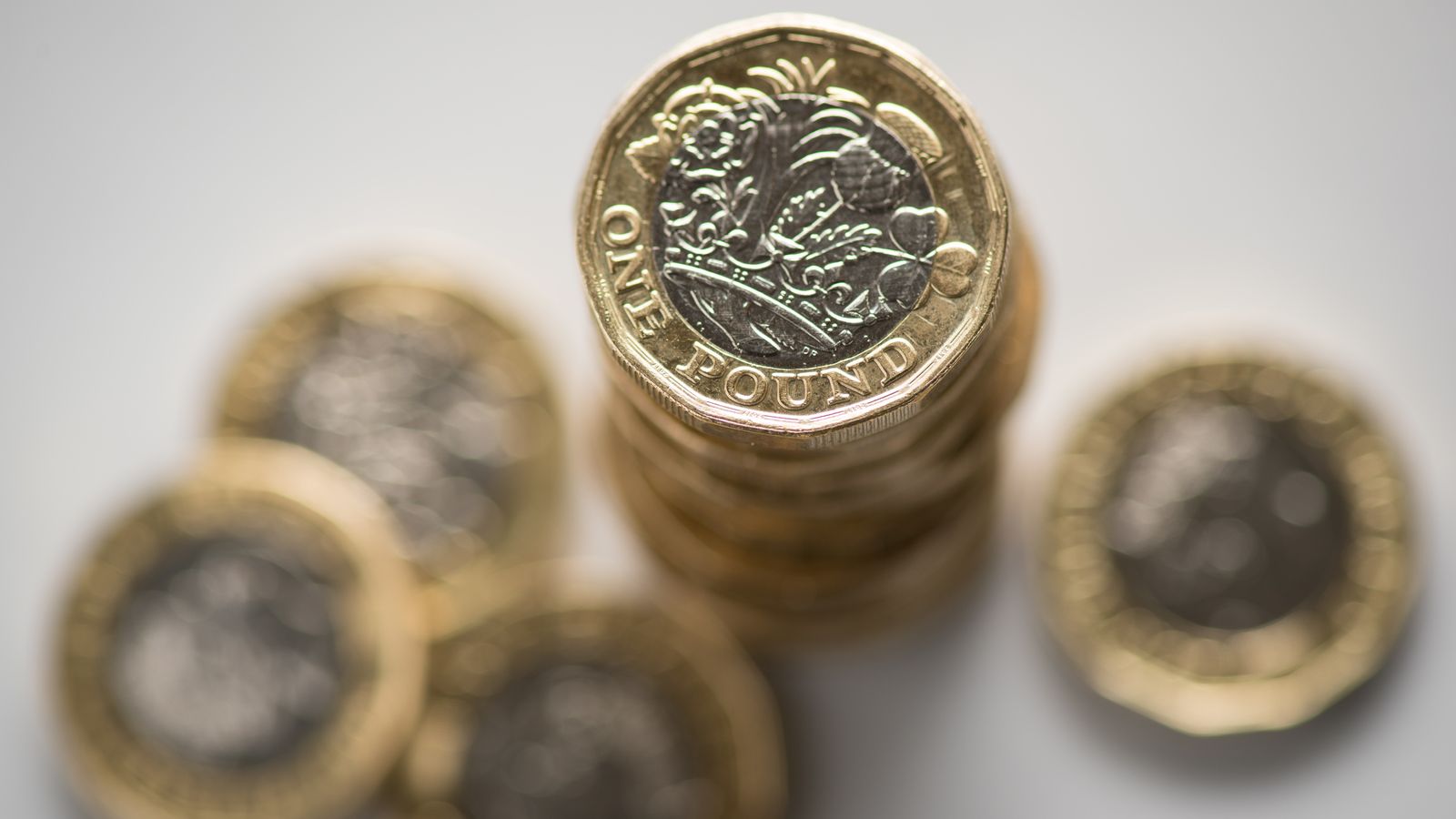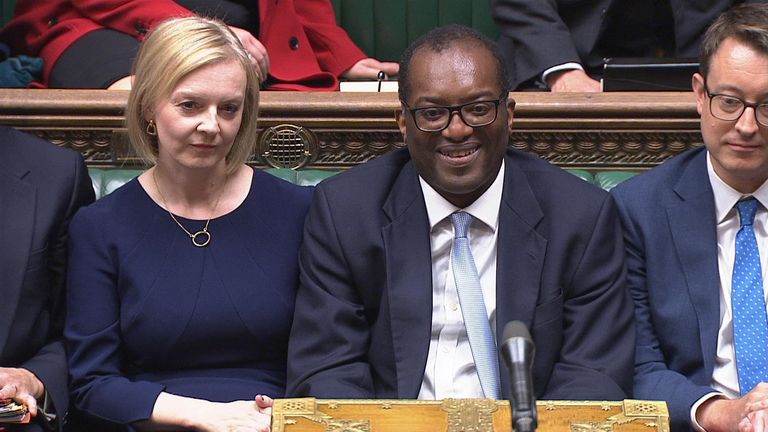The pound has fallen to a record low against the dollar.
Sterling slipped by nearly 5% to $1.0327, falling below 1985 lows.
It stumbled back to $1.05 but is still down some 7% in just two sessions.
The fall came after Chancellor Kwasi Kwarteng unveiled the biggest programme of tax cuts for 50 years on Friday.
The £45bn tax-slashing package saw the pound tumble to fresh 37-year lows.
Its decline continued as trading opened in Asia and Australia on Monday – fuelling fears sterling could plunge to parity with the US dollar by the end of the year.
Click to subscribe to the Sky News Daily wherever you get your podcasts
Both the chancellor and Prime Minister Liz Truss defended their programme.
In an interview with CNN on Sunday, Ms Truss rejected comparisons with US President Joe Biden’s approach after he said he was “sick and tired of trickle-down economics”.
She said: “We all need to decide what the tax rates are in our own country, but my view is we absolutely need to be incentivising growth at what is a very, very difficult time for the global economy.”
Asked whether she was “recklessly running up the deficit,” Ms Truss said: “I don’t really accept the premise of the question at all”.
Mr Kwarteng suggested his announcements were just the beginning of the government’s agenda to revive the UK’s stagnant economy.
“We’ve only been here 19 days. I want to see, over the next year, people retain more of their income because I believe that it’s the British people that are going to drive this economy,” he told the BBC’s Sunday With Laura Kuenssberg programme.
Mr Kwarteng is reportedly considering abolishing a charge for parents who earn more than £50,000 and claim child benefit, increasing the annual allowances on pension pots and a tax break for people who stay at home to care for children or loved ones.
If sterling fell to parity with the US dollar, it could trigger a rebellion among Tory backbenchers who could refuse to vote for the government’s finance bill or submit letters of no confidence, the Daily Telegraph reported, citing backers and critics of the prime minister.
Asked whether he was nervous about the dropping pound, falling stock markets and rising cost of government borrowing, Mr Kwarteng said: “We’ve got to have a much more front-footed approach to growth and that’s what my Friday statement was all about.
“I think that if we can get some of the reforms… if we get business back on its feet, we can get this country moving and we can grow our economy, and that’s what my focus is 100% about.”
He refused to comment on market movements, saying: “I’ve been focused on the longer term and the medium term, and I think it was absolutely necessary that we had a long-term growth plan.”


